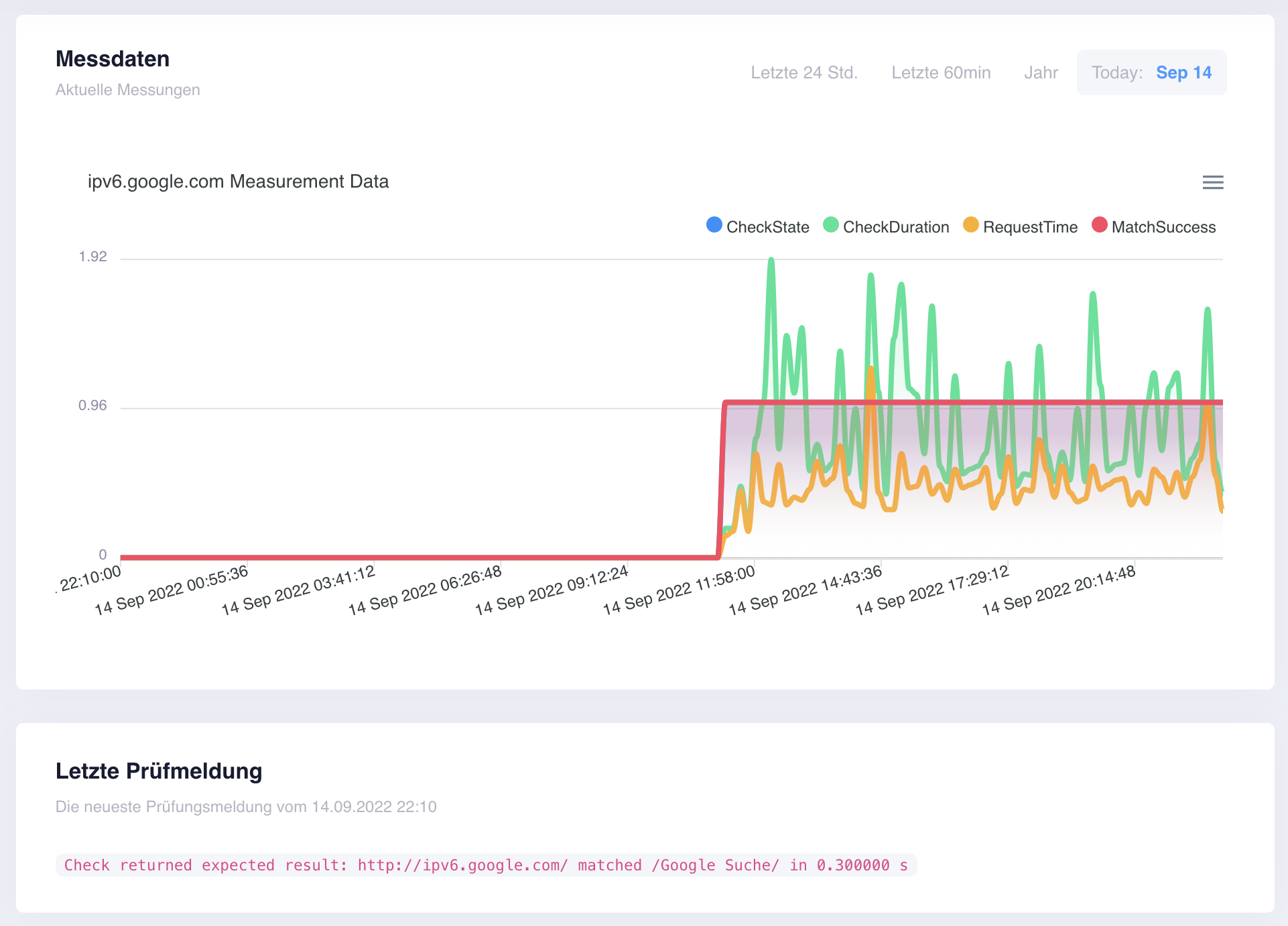 Since today we support IPv6 support for various tests. When you install new checks using an IPv6 address, these checks are performed through our endpoints. If you have problems setting up the IPv6 checks, please do not hesitate to contact us.
Since today we support IPv6 support for various tests. When you install new checks using an IPv6 address, these checks are performed through our endpoints. If you have problems setting up the IPv6 checks, please do not hesitate to contact us.
Here we answer questions about server monitoring from Livewatch. If you have a question that we have not yet answered here, please contact us.
“IPv6 support” refers to the ability of a network, device, or application to use Internet Protocol Version 6 (IPv6). IPv6 is the latest version of the Internet Protocol and was designed to address the exhaustion of available IPv4 addresses. While IPv4 only supports about 4.3 billion unique IP addresses, IPv6 offers a nearly unlimited number of addresses, which is critical to the growth of the Internet and the increasing number of connected devices.
Some key points about IPv6 support:
Address Space: IPv6 uses 128-bit addresses compared to IPv4's 32-bit addresses. This allows for a much larger number of unique addresses.
Address notation: IPv6 addresses are represented in hexadecimal numbers and may contain colon-separated blocks. For example: 2001:0db8:85a3:0000:0000:8a2e:0370:7334.
Auto-Configuration: IPv6 supports automatic configuration of network addresses for devices, making manual configuration easier.
IPv4 Compatibility: Systems that support IPv6 may also support IPv4 to allow for a smooth transition period.
Security and Routing: IPv6 also offers improvements in security and routing efficiency compared to IPv4.
As the number of available IPv4 addresses continues to decline, migrating to IPv6 becomes increasingly important to support the growing number of Internet connections. Most modern networks and operating systems support IPv6, and many Internet service providers are implementing IPv6 in their networks to ensure the future viability of their infrastructures.